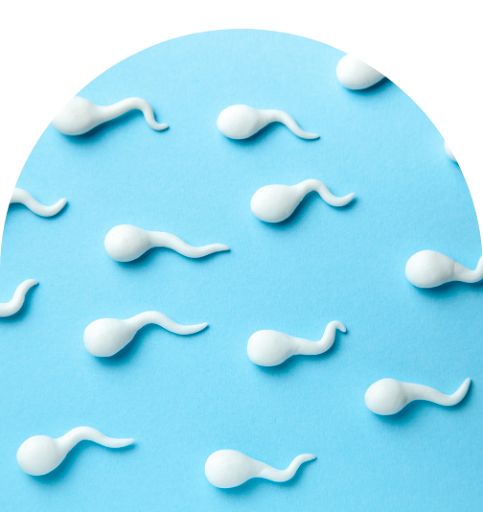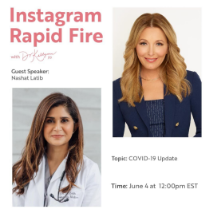Functional health tips for high-quality swimmers
Up to 15% of couples face fertility issues when trying to conceive. In around half of these cases, male factor infertility plays at least a partial role(1).
All too often, couples are given a diagnosis of “unexplained infertility” after standard testing and multiple failures to conceive naturally. However, from a functional fertility perspective, there’s always an underlying reason – it may be due to factors like toxin exposure, nutrient deficiencies, inflammation, hormonal imbalances, or other physiological stressors.
Optimizing male fertility by addressing these root causes is crucial. Poor sperm health has been linked to an increased risk of miscarriage, birth defects, and chronic health issues in offspring. Taking a proactive functional approach can greatly improve the chances of conception and a successful pregnancy, whether attempting natural conception or using assisted reproductive techniques like in vitro fertilization.
Male infertility affects around 7% of men worldwide. It can arise from various factors like low sperm production, poor sperm quality, oxidative stress(2), blockages preventing sperm release, or undescended testicles. Health issues like diabetes, infections, hormonal imbalances, or tumors may also contribute(1).
Signs that could indicate fertility problems include difficulty ejaculating, low sex drive, erectile dysfunction, pain/swelling in the testicles, and reduced facial/body hair growth.
Functional health sees the patient as a whole person, an entire interconnected system. Conventional medicine tends to focus on the body as a series of parts to be repaired, much like how a mechanic approaches a car. But we all know that people aren’t cars!
Every single one of our systems is connected. When there’s an issue in one area (say, the gut microbiome), there’s a massive trickle down effect that happens. That’s why in our functional fertility practice, we look at a person’s entire lifestyle – from what they eat to their home environment to their job/career – in curating a hyper-targeted protocol to resolve the root issue of their inability to conceive.
Effective Functional Medicine Tips to Boost Sperm Quality
Whether trying to conceive naturally or using assisted reproductive techniques, having healthy sperm is key.
A healthy sperm count (number of sperm), good sperm motility (movement ability), and normal sperm morphology (shape) are essential for male fertility. Low sperm count, poor sperm motility, and abnormal sperm morphology can make it difficult for the sperm to fertilize the egg, leading to male infertility issues.
Here are some science-backed tips to improve sperm count, sperm motility, and sperm morphology:
1. Optimize nutrition
Eat a balanced diet with fruits, veggies, whole grains, lean proteins, and healthy fats. Antioxidant-rich foods like berries, nuts, seeds, leafy greens, and citrus fruits can protect sperm from oxidative stress damage. Include vitamin C, vitamin E, zinc, folic acid, and fatty acids, which play an important role in sperm health.
2. Manage stress
Chronic stress raises cortisol levels, which may impair testosterone levels and sperm production. Relieve stress through meditation, deep breathing, yoga, or mindfulness practices.
3. Support testosterone
Maintain healthy testosterone levels with regular exercise, stress relief, sufficient sleep, and a healthy weight. Nutrients like zinc and vitamin D and herbs like ashwagandha may also help.
4. Promote sperm health
Supplements that improve sperm parameters include coenzyme Q10, L-arginine, L-carnitine, vitamin C, vitamin E, selenium, and zinc. These provide antioxidants and support new sperm development.
5. Avoid unhealthy exposures
Recreational drugs, anabolic steroids, illicit drugs, excessive alcohol consumption, secondhand smoke, hot tubs, and heavy metals exposure can negatively impact semen quality and the number of sperm.
6. Support testes
The testes are responsible for producing sperm and testosterone. Proper testicular function is crucial for maintaining healthy sperm production and hormone balance. Factors like oxidative stress, toxin exposure, and hormonal imbalances can impair testicular health and function. Herbs like Tribulus, maca, and fenugreek may aid testicular function and hormone balance, according to some studies(3).
Functional Fertility Evaluation, Testing, and Labs
A comprehensive functional health approach usually involves identifying and addressing any underlying imbalances or dysfunctions that could be contributing to male infertility.
For instance, we can access specialized labs in functional medicine that conventional doctors don’t.
We have also discovered that the acceptable lab thresholds must be higher for those looking to conceive naturally rather than go the IVF route. Always confer with your functional fertility practitioner about what labs are recommended and ways to get your numbers into the ideal zones.
Evaluation may include:
Hormone Testing
Evaluating levels of reproductive hormones like testosterone, luteinizing hormone (LH), follicle-stimulating hormone (FSH), and prolactin can help identify potential hormonal imbalances that may impact sperm production or quality.
Nutrient Testing
Deficiencies in certain nutrients, such as zinc, selenium, or antioxidants, can contribute to poor sperm health. Functional testing can identify specific nutrient deficiencies that must be addressed through dietary changes or supplementation.
Gut Health Assessment
The gut microbiome plays a crucial role in overall health, including reproductive function. Dysbiosis (imbalance in gut bacteria) or increased intestinal permeability (leaky gut) can contribute to inflammation and impaired nutrient absorption, both of which can negatively impact sperm health.
Environmental Toxin Exposure
Exposure to environmental toxins, such as heavy metals, pesticides, or endocrine-disrupting chemicals, can adversely affect sperm quality and male fertility. Identifying and reducing exposure to these toxins may be necessary for optimizing sperm health.
By conducting a comprehensive evaluation and addressing any underlying imbalances or dysfunctions, a functional health practitioner can develop a targeted, individualized treatment plan to optimize sperm health and improve the chances of successful conception, whether through natural means or assisted reproductive techniques like IVF or IUI.
Conclusion
Making positive lifestyle changes can naturally boost your fertility potential. A healthy lifestyle with a balanced diet, moderate exercise, weight loss if needed, managing stress, adequate sleep, and avoiding toxins can have positive effects on the health of your sperm.
Work closely with your fertility specialist and/or functional medicine practitioner to identify and address possible causes impacting your overall health and male reproductive cells.
An integrative approach is often the best way to improve sperm concentration, sperm motility, and overall sperm quality for conception with your female partner or fertility treatment success.
Remember, there IS a reason for your inability to get pregnant naturally!
By understanding and proactively addressing these root causes, many men can achieve a significant improvement in their semen analysis results and maximize their chances of fathering a healthy child.
In our practice, we have an over 80% success rate in helping couples get pregnant naturally—even after everything else has failed!
If you would like our support to walk through the process step by step, we are here for you! Watch our free, on-demand masterclass here and take the action step to apply to work with us. We’ve helped countless couples like you succeed in optimizing their fertility, even when they are starting a family a little later in life.








